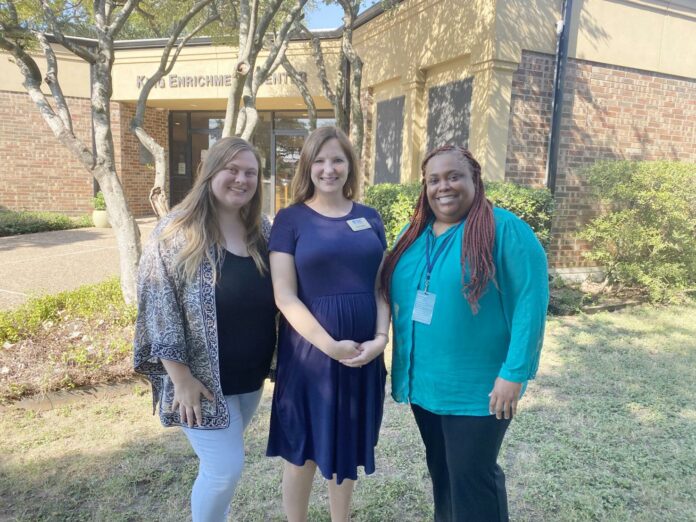
Nurturing, strong, flexible, teachable, compassionate and understanding.
These are a few traits staff at the Texas Baptist Home for Children said are critical for parents looking to adopt or foster.
“We don’t expect families to come in and know everything,” Staci Beck, lead foster care director and clinical associate, said. “It’s about being willing to learn and willing to learn new things and try new things because every kid is different. If you’re unwilling to learn new things, it’s going to be really challenging for you.”
Beck emphasized that the foster care and adoption systems change every day and prospective parents must be willing to be flexible and adapt.
Becoming a licensed foster or adoptive parent is a long and overwhelming process – about three to six months. TBHC walks alongside prospective parents, offering support and guidance, and they developed a step-by-step process to help make it more manageable, easier and less stressful.
Prospective parents begin the process by expressing interest to TBHC through email, phone or an inquiry form located on their website.
Family recruiter Olivia Bentley reaches out to them, shares information and invites them to a virtual First Steps Meeting held the first Wednesday and second Tuesday every month.
It’s at these meetings that parents learn about the licensing process, what resources and benefits will be available to them and TBHC’s mission.
“Our mission and purpose is to glorify God by caring for kids,” Bentley said. “When agencies have their own unique mission and vision that could translate into requirements that go above and beyond what state minimum standards requires. We are faith-based, so we do require families to be members of a church … and actively involved in a church community.”
From there, parents determine if TBHC is a good fit for them and begin the five-step licensing process.
The first step is legal documentation and an initial application, including background checks and getting their finances approved.
Next, prospective parents will provide family and home information. TBHC looks at their family history and requires multiple references. Bentley said each parent is required to have at least one babysitter on file with them that has been certified through TBHC.
In step three, they begin working with pre-service supervisor Shanda Smith-Brooks and attend a training weekend with TBHC where they learn about trauma, discipline, parenting, cultural competency, compassion and trauma informed parenting.
Next, they begin their online trainings required by the state and other required TBHC trainings.
Lastly, they complete their required health appointments and verify their home follows minimum standards. Smith-Brooks conducts a pre-home visit to make sure they meet all the standards, then she assigns a subcontractor for the home study interview with the entire family.
“Our biggest thing is we want to make sure that these kiddos have a stable home because they have been through so much trauma,” Smith-Brooks said. “We want that stability for them.”
Following the completion of all five steps, parents wait about four to six weeks before they know if they are licensed. Once licensed, they will meet the case manager for foster care or the adoption team.
During steps one and two, Bentley checks in weekly with prospective parents, and Smith-Brooks checks in biweekly during steps three through five. After becoming licensed, TBHC continues to offer support and walk alongside parents.
Bentley said the most important thing for prospective parents to know is that “openness matters.” At orientation, she shares the recent statistics of children in foster care. They are seeing more school aged children, more kids with behavioral or medical challenges and more sibling groups.
“You don’t have to be open to all of these,” she said. “You don’t have to take in a sibling group of teens that have all these behavioral challenges, but I do challenge our parents to meet at least one of those needs. I think that can go just such a long way.”
TBHC encourage families to take the time to find the agency that fits them best by researching the resources and support they offer. Beck also encourages families to find a support system outside of their agency with their friends and family.
For more information, visit https://tbhc.org or fill out the inquiry form at https://tbhc.org/getting-started/.






